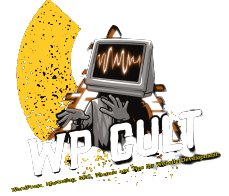Guest Post
How Is Blockchain Revamping Data Security & Immutability?
Blockchain technology, a decentralized ledger system enabling secure and tamper-proof transactions between peers without intermediaries, is gaining prominence. Businesses can use it to eliminate the need for third parties, improve data security, and prevent data theft and fraud. Blockchain has applications beyond cryptocurrency, including voting, land registry, and financial contracts. Even though complex, its use benefits industries like banking and healthcare by creating immutable records, negating fraud, tracking data origin, and improving transparency.

There’s a topic gathering momentum over the last few years – how to protect data better. With the recent release of Bitcoin, we’ve seen new types of security methods like blockchain become more popular and available. This article teaches what blockchain is and how it might make your data more secure than ever before. What is Blockchain?
First, it’s essential to know what blockchain is. The most basic definition of blockchain technologies is a distributed ledger system that allows transactions between peers without intermediaries. Put in simple terms. Blockchains are decentralized systems that will enable users to verify and record transactions securely and transparently.

Blockchain’s decentralized nature enables peer-to-peer (P2P) payments through their use of cryptography to ensure data integrity and security. This encryption process means each transaction sent on the blockchain will be verified by multiple network members rather than a single entity like a bank.
Blockchain Potential.
Blockchain technology has many potential applications beyond cryptocurrency, including voting, land registry, financial contracts and settlements, and intellectual property. Many online agencies use blockchain technology, such as Incrementors Online Reputation Management services, to help manage and maintain your online reputation by managing online conversations. If you can provide your customers with the exact thing that they are searching for, this thing would boost user engagement on your website.
These uses require trust in the system; however, blockchain can provide security and transparency without third-party intermediaries.

How Does Blockchain Solve Problems?
The blockchain is a distributed database that allows for secure and tamper-proof transactions. By using the blockchain, businesses can improve data security by eliminating the need for a central repository. Additionally, the blockchain can help to prevent data theft and fraud. How Private is Blockchain? Blockchain is a distributed ledger that can be accessed by anyone with the right software but does not leave any personal information behind.
Blockchain for Business. How do you use blockchain in your business? This article will help you understand how blockchain works and what kinds of benefits it can bring to your business. You will also learn how IBM uses blockchain technology and how companies like Walmart, Cisco, BMW, and others use it today.
Blockchain in Banking: A New Global Revolution. Blockchain can be the most important invention since the Internet itself was created almost 20 years ago, but so far, few people have heard of it because nobody has understood it exactly.
How does blockchain work in simple-to-understand terms?
Blockchain is a disruption to data security. In short, a blockchain is a distributed database that allows for secure, tamper-proof transactions. In addition, it uses a peer-to-peer network to manage information. As a result, it is difficult for hackers to steal data or make fraudulent transactions.
One of the key benefits of blockchain is that it eliminates the need for a middleman, which means that data can be securely transferred between parties without a third party, such as a bank or an insurance company, in turn eliminating potential fraud and making it easier for businesses to operate transparently.
A few companies are already using blockchain in their operations. For example, HSBC uses it to track diamonds and other precious stones. Microsoft is using it to manage its Azure cloud services. And Sweden’s land registry is using it to manage property titles.
There are still some kinks to be worked out with blockchain technology, but its potential benefits are clear. For example, it could help revitalize data security by eliminating the need for third parties and making transactions more secure.
What are the Advantages of a Blockchain?
Blockchain technology is revamping data security and has a lot of advantages:
- It is decentralized, so it is not subject to any single point of failure.
- Blockchain creates an immutable record of transactions that anyone can verify.
- Blockchain makes it resistant to fraud and other cyberattacks.
Another advantage of blockchain is that it allows for tamper-proofing and tracking the origin of data. Blockchain prevents data from being altered or stolen in transit or after it’s been stored. The distributed nature of blockchain also makes it difficult for someone to hack into a system and access sensitive information.
Overall, blockchain technology has many advantages when it comes to data security. It is decentralized, immune to fraud, and can track data origin. Blockchain’s only shortcoming is that it can be challenging to understand and use, but it’s currently worth the effort. Using Blockchain Technology

How does Blockchain Decentralize Data Security?
Blockchain is a secure and transparent digital ledger of all cryptocurrency transactions. It uses a distributed computing algorithm to record and manage transactions without the need for a third party. As a result, blockchain eliminates the need for a central authority, such as a bank, to administer and verify transactions. As a result, blockchain makes it an ideal solution for tracking data security.
The benefits of using blockchain for data security are manifold. First, it provides an immutable record of all transactions. Blockchain eliminates the risk of fraud or tampering. Furthermore, because blockchain is decentralized, it is difficult for anyone to hack into the system. Blockchain prevents hackers from stealing valuable data or blackmailing companies into doing their bidding.
Blockchain can also be used to create tamper-proof records of identity management and other sensitive data. Blockchain allows companies to ensure that data is only accessed by authorized individuals and prevents criminals from accessing personal information. Online marketing agencies such as Incrementors’ link-building strategies do not only increase your referral traffic, but their professional link builders will help you to build relationships with high authority domains as well. In addition, blockchain can be used in the healthcare industry to keep track of medical records.
As a result, medical professionals will not be able to change or manipulate patient files, and patients will be able to share their medical history with other physicians without fear of repercussions.
Conclusion
Blockchain is revolutionizing data security. It can make it much more difficult for hackers to steal or corrupt information. This article will explain what blockchain is and how it works. I’ll also discuss how it is being used to improve data security. If you’re interested in learning more about blockchain and its potential benefits for your business, read on!
Author BIO
Shiv Gupta is the Founder and Head of Growth at Incrementors. Incrementors is an Award-Winning Digital Marketing Agency that helps clients grow their business online by generating more traffic, leads, and sales. Incrementors specializes in providing customized, tailored online marketing solutions highly specific to the needs of the clients.
Guest Post
5 Reasons You Should Never Give Up When Trying To Make Money From A Blog
Did you know that it’s easier to increase your earnings each month from 2K to 10K than it is to go from 0 to 2K? This is because when you reach the 2K per month point you already have a well-oiled machine. Starting from scratch is really hard and it can almost take forever to earn a decent wage from your blog. If people know how long it took before they would be earning enough money to quit their job they might never start blogging. Those are the people who quit before they see any results.
If you want to be one of the people with a well-oiled machine you have got to put the work in now. The last thing you want to do is quit because you might have only been a few months away from hitting the jackpot and you would have never known. You will be making enough money to quit your job one day, even if it takes you 3 years to do it. That is a long time for anyone, so I want to look at some important things that can give you encouragement and will hopefully stop you from giving up.
Little wins when you least expect it
You could be doing your thing and nothing is going right for you. It’s not for your lack of trying because you are putting in a lot of effort, but for some reason, it almost feels like you are going backward. Then one day you get an email asking if you would like to be featured on a big blog. Or you might receive thousands of visitors because the right person has linked to an article you wrote. Those kinds of things can’t be planned for and they just happen somewhere along the way, usually in your second or third year.
You become well known
When you are trying to network with people it is draining. You try your best to be nice to them and it’s not working. They might respond to a tweet or a blog comment, but it’s obvious they never gave it much thought and they were just trying to be nice. They still don’t know who you are. When you stick at it and have been constantly on someone’s radar for a few years they will definitely know who you are unless they are senile. You just have to stick around and wait for the magic to happen.
Sometimes turning up is enough
People get far too stressed out about how much effort is required. I think there are a few people who don’t even get any sleep because they try too hard. Sometimes all you need to do is turn up. I know that might sound strange, but you don’t need to start doing everything possible to succeed. You just need to follow a straight path and keep publishing posts for your readers. Then when you see an opportunity you should snap it up. Sometimes smart thinking beats going crazy.
The snowball effect
Have you ever made a giant snowball? When the snowball is small and it starts to roll it picks up some snow and it gets a little bigger. When it’s huge it will pick up much more snow and it will get bigger a lot quicker. This is what happens with a blog and in the beginning, you are the small snowball. No matter what you do there is only a certain amount of snow you can pick up. When you have been around for years your snowball will pick up much more snow with everything you do.
Becoming better at everything
Everyone who starts out writing doesn’t have their voice, but they find it after a year. They start out doing rubbish videos, but soon the quality will rival anything you see online. Throw in podcasting, marketing, networking, and millions of other things that make people successful. Even though it might seem hard to believe, you get better at things the more you do them, so sticking in for years will mean you turn into a great blogger who can’t fail.
Featured images:
 License: Royalty-Free or iStock source: http://pixabay.com/static/uploads/photo/2013/03/10/06/44/blog-92132_150.jpg
License: Royalty-Free or iStock source: http://pixabay.com/static/uploads/photo/2013/03/10/06/44/blog-92132_150.jpg License: Royalty-Free or iStock source: http://pixabay.com/static/uploads/photo/2012/04/12/12/33/black-29827_150.png
License: Royalty-Free or iStock source: http://pixabay.com/static/uploads/photo/2012/04/12/12/33/black-29827_150.png License: Creative Commons image source
License: Creative Commons image source License: Creative Commons image source
License: Creative Commons image source
Blogging is an art in itself and many people startup with much fervor and then give up citing difficulties. The author in today’s guest post advises us why not to do such a thing. Along with his daily work, Kish Winner Exposes the property to get rich scam seminars to alert people about the dangers online.
Guest Post
Increase Your Chances Of Success By Using A Virtual Office.
The poor economic climate here in the UK has left many small businesses struggling to survive. Many have had to put plans of growth on hold as they simply cannot secure the finance they need from the banks. If you are looking to expand your business in the near future and increase its chances of success, why not consider utilising the services of a virtual office? In this article we will explain how virtual offices can benefit small businesses and help them to achieve their goals successfully.
 Benefit #1: Prestigious business address
Benefit #1: Prestigious business address
The quality of your business address goes a long way when it comes to creating the right impression on your customers. If you use a virtual office in a big city like London, you will immediately become associated with the other successful businesses that reside there. A prestigious business address (courtesy of your virtual office) can help you to build up you customers’ trust in your company and widen your customer base nationally or even internationally. Creating the impression of success is the first step to take and will help you to compete with some of the larger players in the industry you are part of.
Benefit #2: Improved customer service
Today companies simply cannot operate without providing their clients with a good customer service. The better your customer service is, the happier your customers will be. This will make them more likely to recommend you to their peers, helping you to gain more clients and increase your profits. Using a virtual receptionist can help you to improve your customer service, which will in turn increase your chances of success.
Virtual receptionists have the skills, knowledge and expertise to be able to offer your customers the best service possible. Whether you lack customer service skills yourself or simply do not have the time to handle your customers’ calls, a virtual receptionist is the perfect solution. Whilst answering your customers’ calls in a friendly and professional manner, many virtual receptionists also offer extended hours of service. This means that your customers can contact your business at a time that is most convenient to them. Increasing your business contact hours is a great way of pleasing customers, which of course has an impact on the overall success of your business. A good reputation goes along way after all!
Benefit #3: Increased focus on important business tasks
When handling all aspects of their business themselves, many business owners end up having to turn down work and let down clients because they have to work non-profitable tasks into their busy schedules. By working with a virtual office you can outsource some of your non-profitable tasks to a virtual assistant. This will lighten your work load enabling you to spend more time on doing the things you do best, such as securing new clients, growing your business and guiding it into the realms of success.

Conclusion
Building up a positive reputation for your business is the key to success. This is something that is easily achievable with the help of a virtual office. Not only will you be able to secure a prestigious business address for your company which will create a great first impression on potential customers, but you will also benefit from the expertise of virtual assistants in terms of customer service. The more effort you put into creating a good impression on customers, the more likely they will be to recommend your business and use your services again and again. The more people that know about your business, the more potential there is to secure new clients, which will in time lead to higher profits and overall success.
Featured images:
 License: Creative Commons image source
License: Creative Commons image source License: Creative Commons image source
License: Creative Commons image source
Written by Nathan Griffiths who recommends trying out Manchester Virtual Office
Guest Post
Why And How SEO Services Are Extremely Beneficial.
When it comes to SEO services, there are a number of benefits that you’ll find as a business owner. Using SEO services can help make your business become a little more professional and can take your business to new heights in your online marketing efforts, as well as your rankings in search engines.
Some of the many services that you can take advantage of include copywriting, website redesigning, customer service, link building, social media, and many other internet marketing tactics.
These solutions can help in a systematic manner and this can give your business the advantage it needs. These services are provided by a number of companies that offer a wide array of experience in different elements of SEO.
With this experience and working with an SEO company, anything you pay for is going to help your business gain an online presence and can help gain a better reputation.
Beat Your Competition
One of the biggest aspects of using these SEO services is that they are going to give you an advantage that not many other sites currently have. There are a number of websites that have different services working for them but some are not as professional as using SEO services.
Using SEO services enables you to get the advantages that you can’t get by doing things on your own. They offer extensive experience and skills that are needed to turn your website and products into lucrative income.
Time Is Money
Some SEO services give you the guarantee of seeing results in as little as a few days while others may need a little bit more time to deliver high quality results. Some may even say to give them a few months and if that is the case, consider asking what their plans are to help you out.
Hiring an SEO service is going to help cut back on the amount of work you have to do for your business especially if you don’t have the necessary experience or skills to get the work done. This is going to allow you to focus on other aspects of your business. An SEO company can take care of implementing strategies to help make your business stronger.
Price versus Quality
These days, it’s become easier for companies to find SEO services that they can afford. This is because there are so many available that the demand is decreasing so they are offering lower rates. Before you hire an SEO service company, call a few different companies and compare what each one has to offer.
Robert is a web security consultant. He focuses on advising his clients on the best vps hosting services for their business. When not assisting clients, he is either at museums, parks, or reading to expand his knowledge.
-
Tips & Tricks4 weeks ago
WordPress Security Hacks
-

 Pages3 months ago
Pages3 months agoWrite For Us – Guest Post
-
Showcase4 months ago
StylizedWeb.com
-
News3 months ago
How to: Show/Hide any div box with jQuery in WordPress
-
Tips & Tricks2 months ago
Remove the title attribute using jQuery
-
Tips & Tricks7 months ago
How to: show/hide a widget in WordPress with jQuery
-

 Plugins7 months ago
Plugins7 months agoTop Membership plugins
-
Tips & Tricks4 months ago
Limit the characters that display on the_title






You must be logged in to post a comment Login